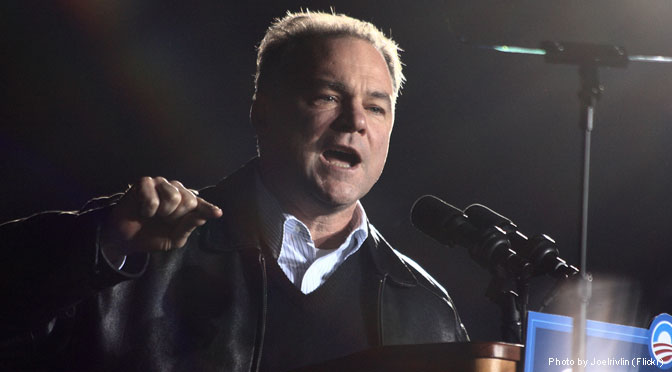As Tuesday’s vice-presidential debate was brought to a close, running mates Republican Mike Pence and Democrat Tim Kaine were asked about their faith and about policy issues. (Live Action News’s Calvin Freiburger already addressed a portion of their answers.) As the two candidates sparred over abortion, particularly Roe v. Wade, Kaine specifically addressed young people (emphasis added):
Governor Pence wants to repeal Roe v. Wade. He said he wants to put it on the ash heap of history. And we have some young people in the audience who weren’t even born when Roe was decided. This is pretty important. Before Roe v. Wade, states could pass criminal laws to do just that, to punish women if they made the choice to terminate a pregnancy.
Senator Kaine, there were people absent from that audience who were absent precisely because of Roe v. Wade. Those born after Roe became law are lucky to be alive. Millennials are often called the pro-life generation (often known on social media as #prolifegen) because of an awareness that they are missing a portion of their generation thanks to abortion. Polls consistently show that young people are pro-life, even if they don’t identify with such a label, and are more so than previous generations.
Survivors of the Abortion Holocaust highlights on their website in a message to young people that “[o]ne third of your generation has been killed by abortion.”
Young people today are alive in a time where medicine and technology has advanced to show proof of the humanity of the preborn child more than ever before. Millennials have sometimes been called the ultrasound generation for this reason. This window into the womb has allowed young people to see images of their brothers, sisters, and now even their own children. Many previously abortion-minded women have also chosen life after seeing ultrasound images of their children. Young people are fighting for their fellow humans because they know about fetal development, and they know that the abortion industry has been lying to women about it, obscuring the truth about how developed their preborn babies really are.
From the start, a preborn child has her own DNA. In the first trimester, the preborn baby’s organs are being formed, her heart is beating, and she has brain waves. Very quickly, she begins to resemble a newborn baby, doing things babies outside of the womb do — yawning, sucking her thumb, and playing. In the womb, preborn children do many more amazing things, including beginning to learn, dreaming, reacting with gestures, and remembering.
This information is important for women to have, and some states are realizing this. This year, Oklahoma passed the Humanity of the Unborn Child Act to provide more information about fetal development to women, with the aim of “achiev[ing an] abortion-free society.”
In the vice presidential debate, Governor Pence addressed young people as well, saying, “People need to understand we can come together as a nation. We can create a culture of life. More and more young people today are embracing life because we know we are — we’re better for it.” He’s right.
Pregnancy centers, post-abortion healing groups like Rachel’s Vineyard, Silent No More, and even secular resources provided by pro-lifers prove that we are not only pro-life, we’re pro-women. As Pence stated in the debate, an abortion is a “heartbreaking choice” — and with more and more of the younger generations witnessing its devastating impact on society, we can have hope that arming women with the truth will help them to avoid that heartbreak.







